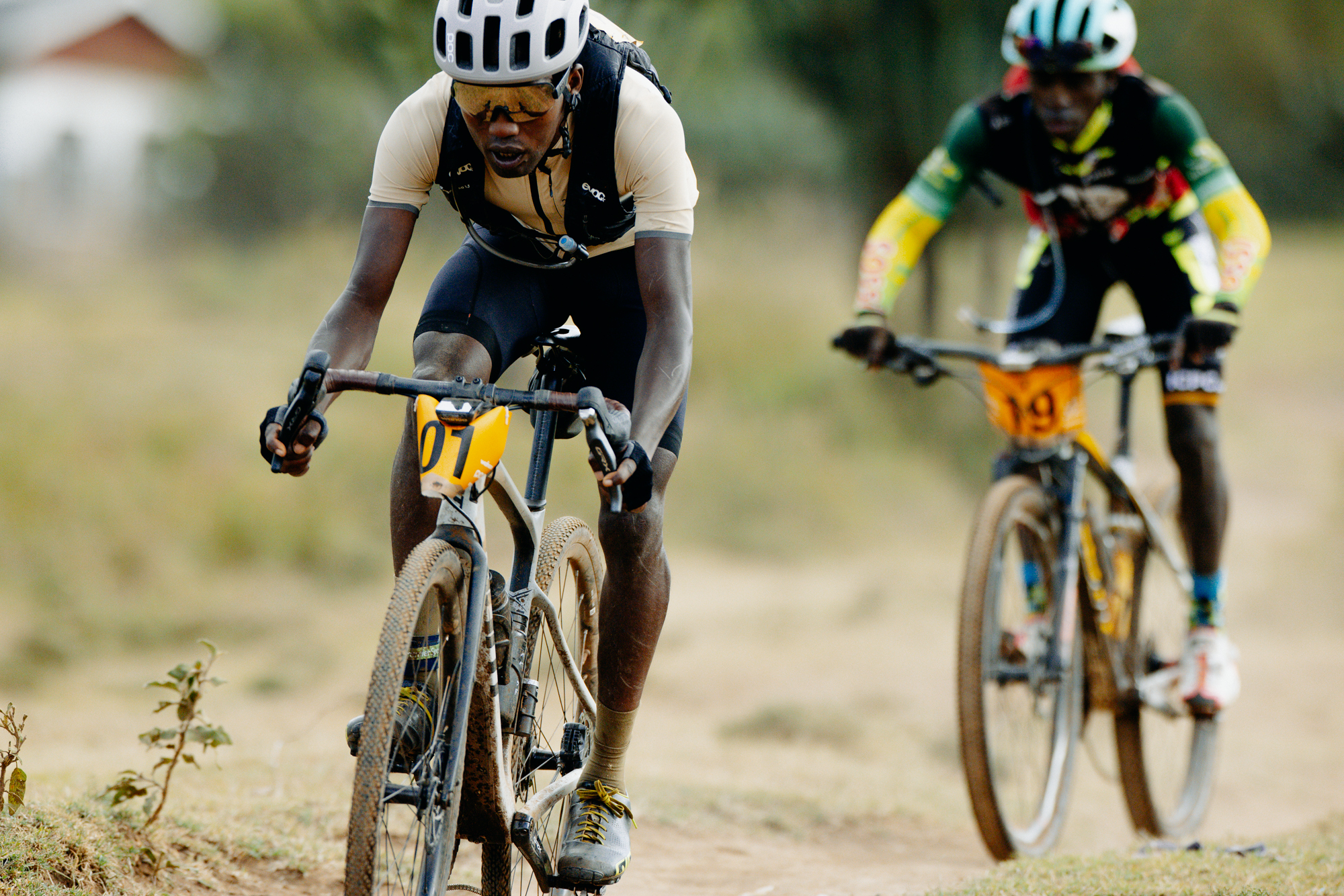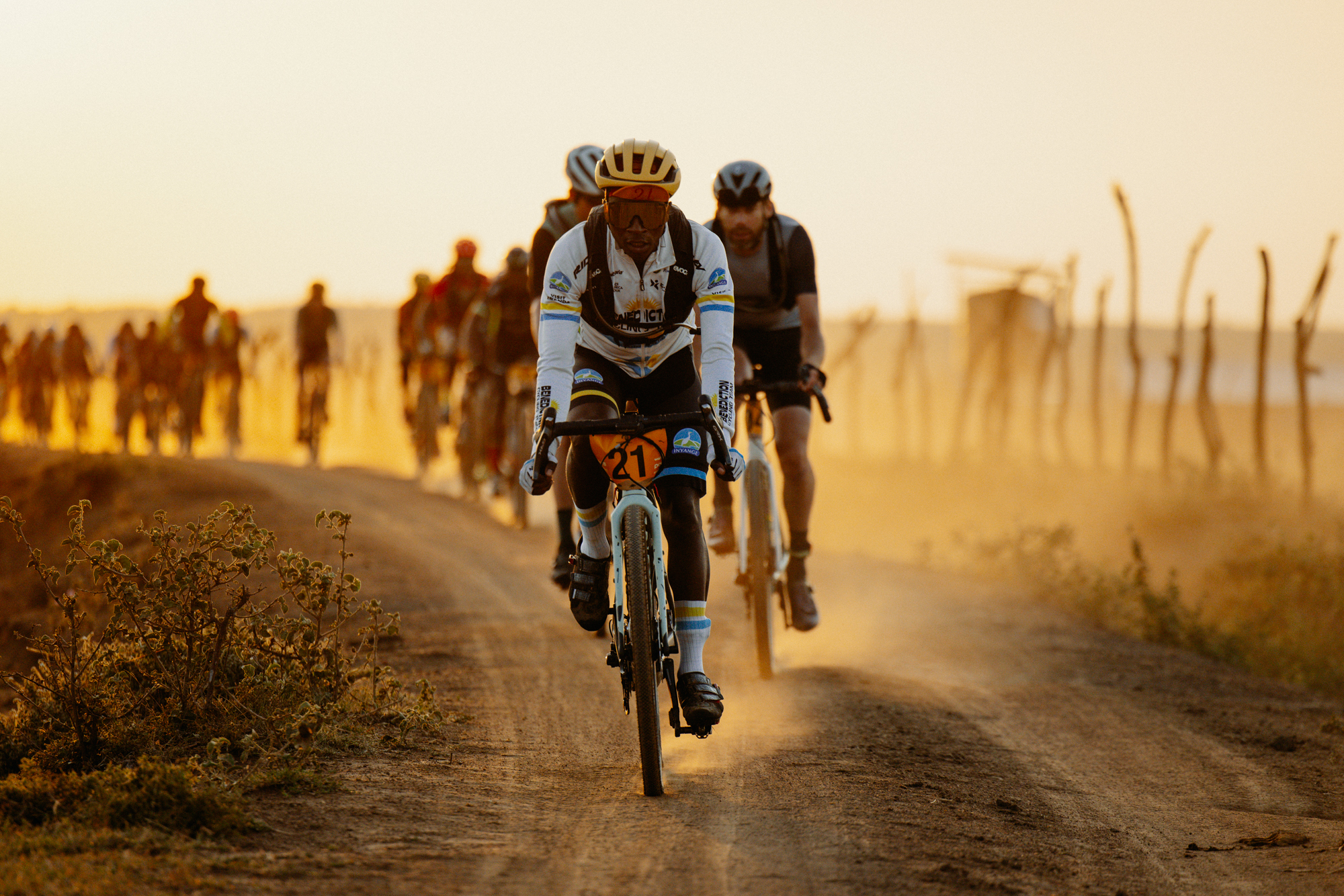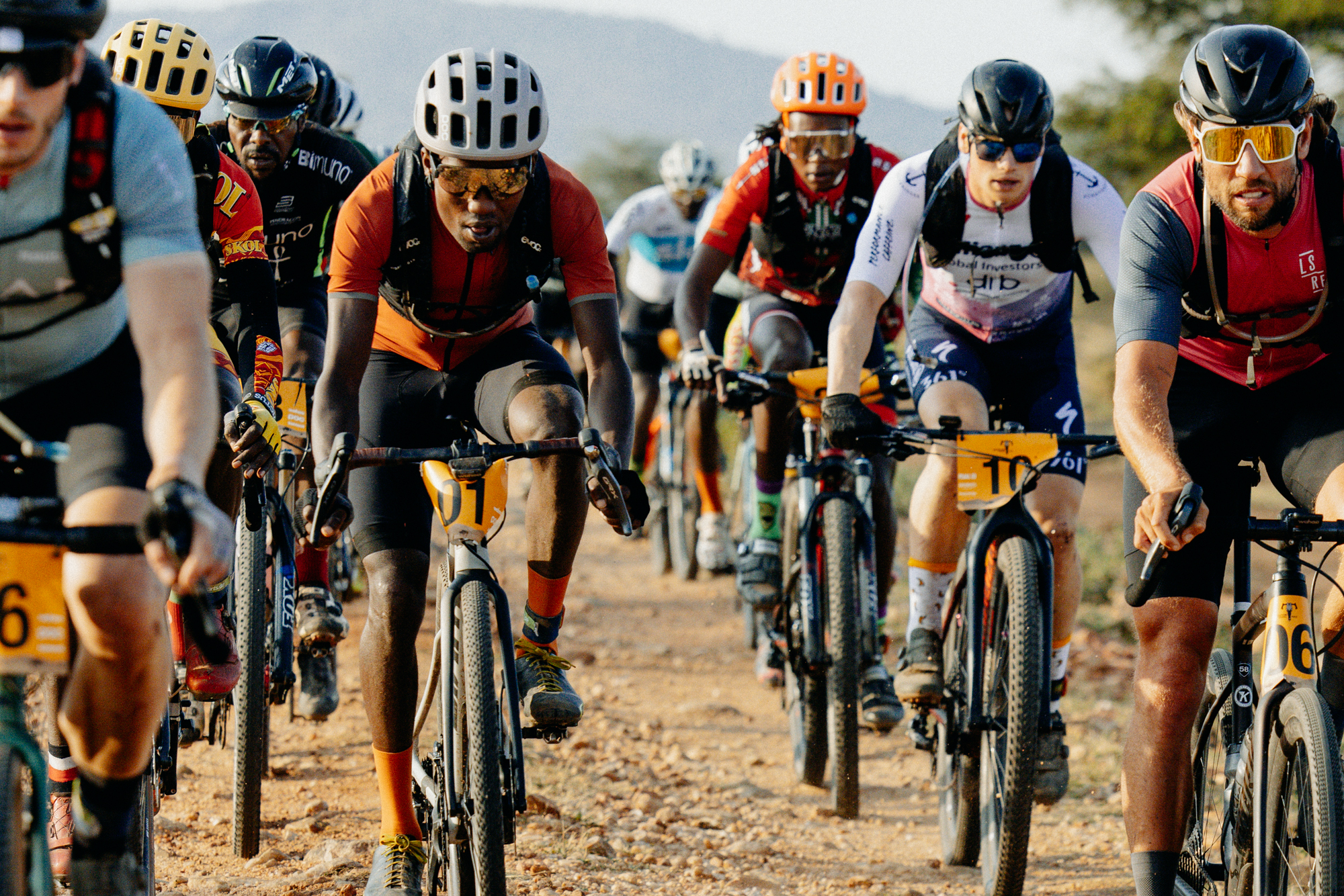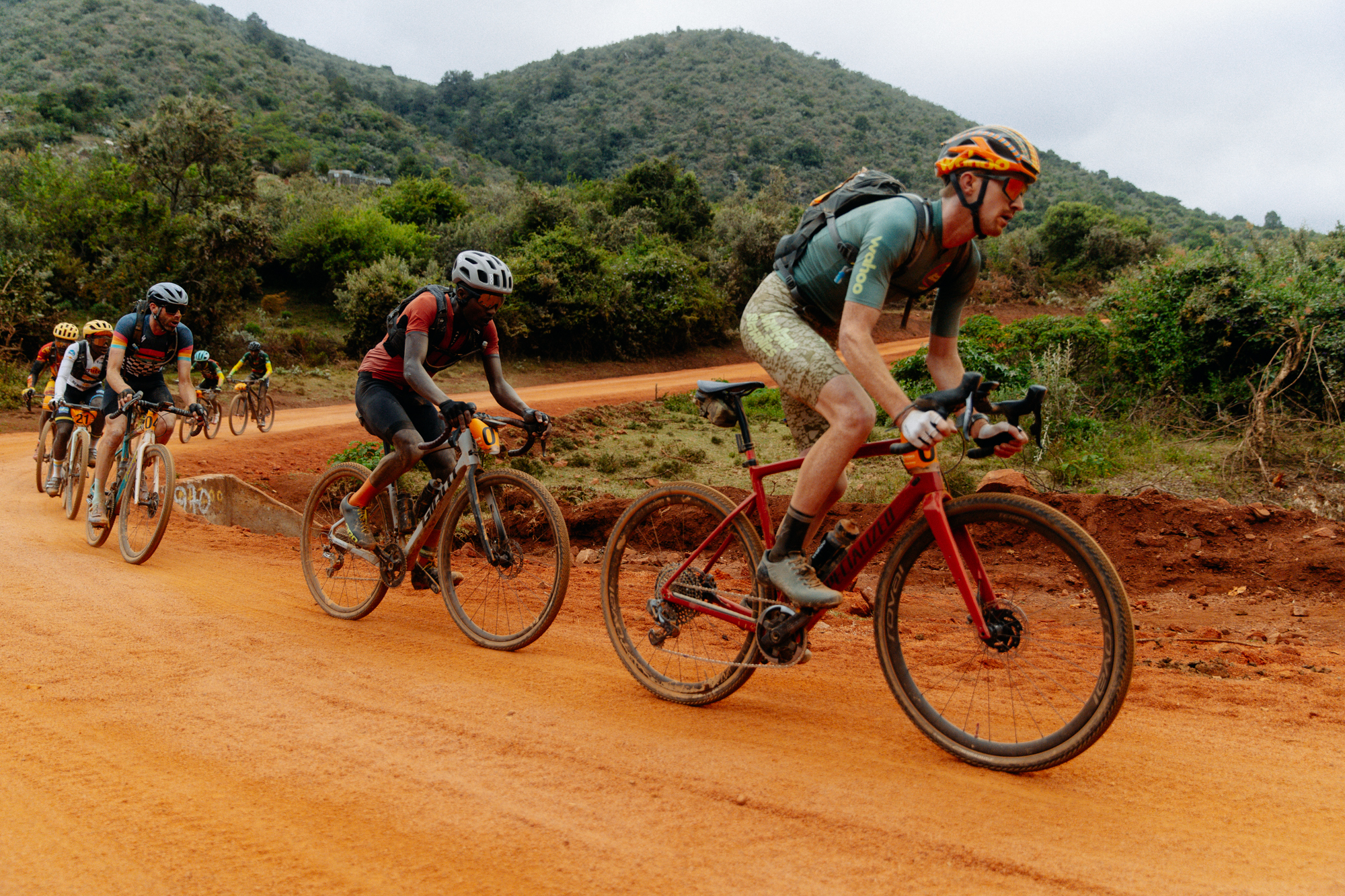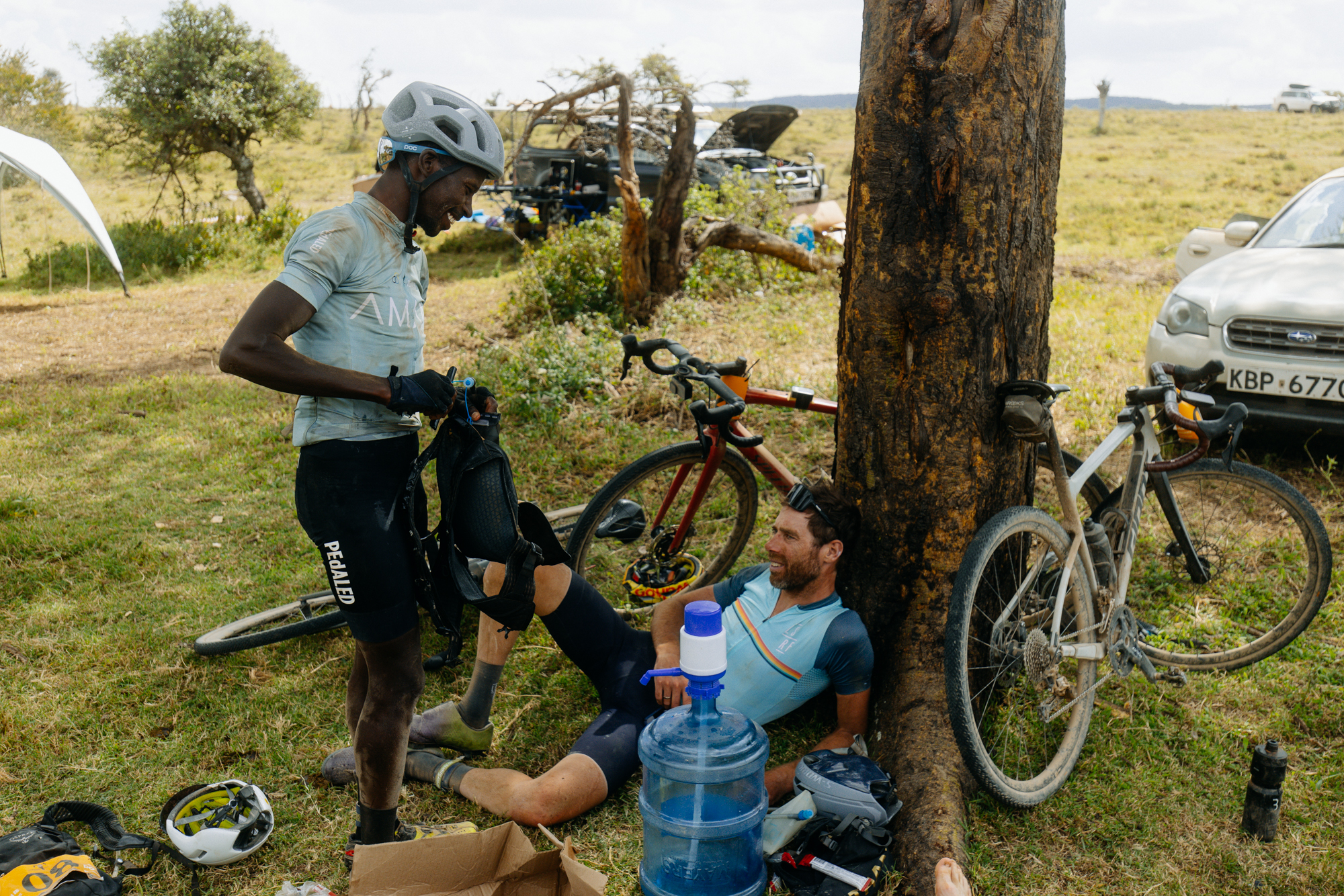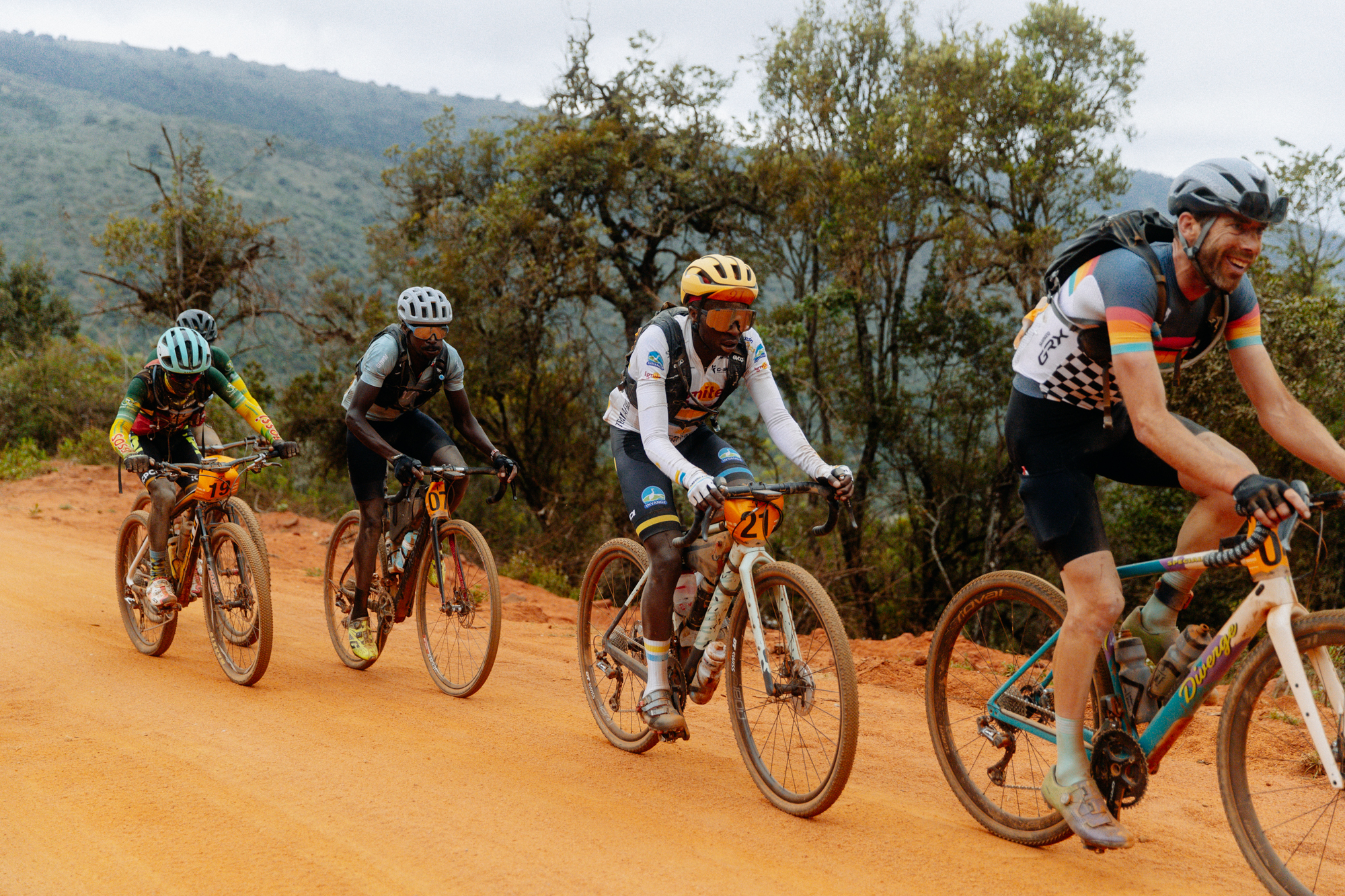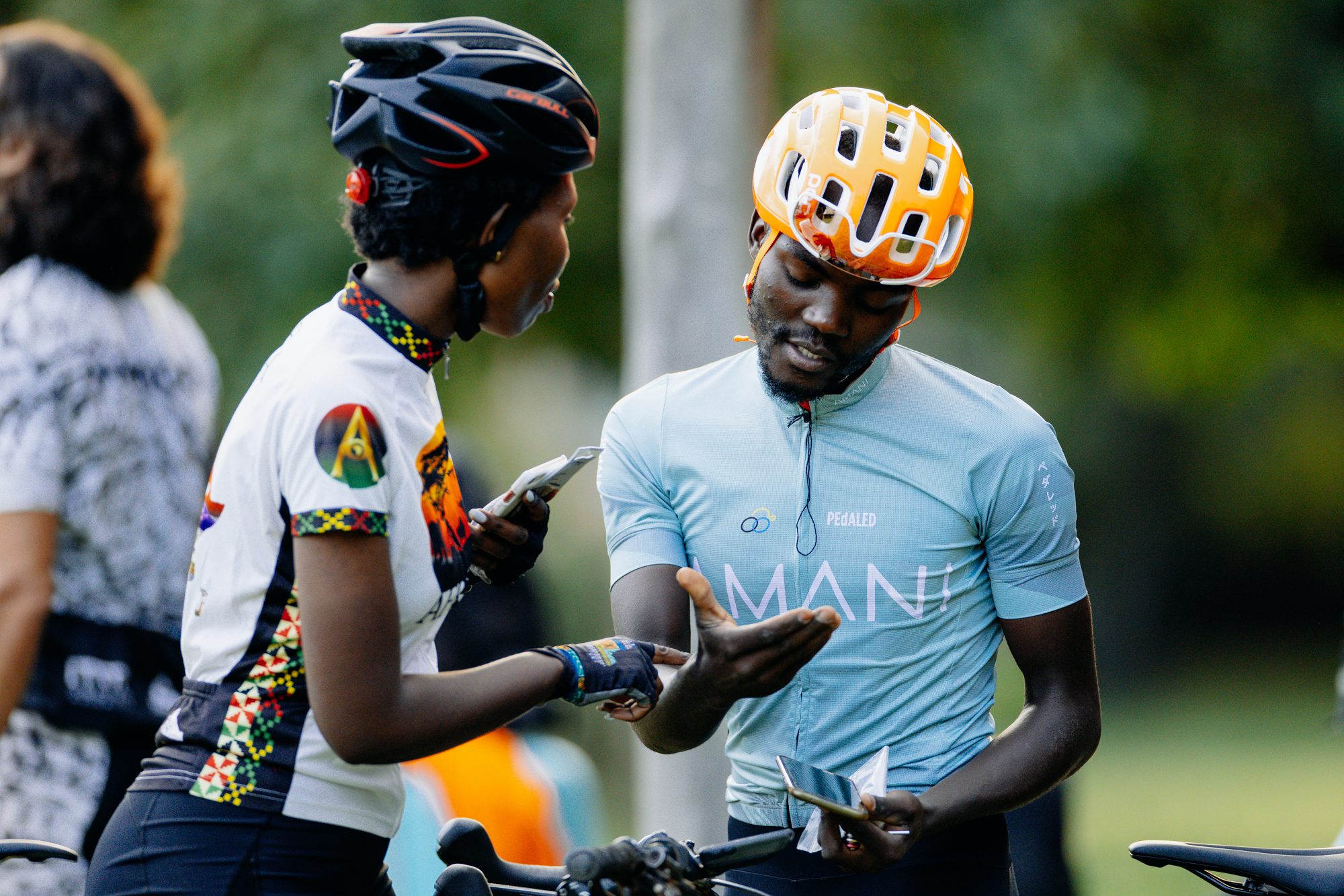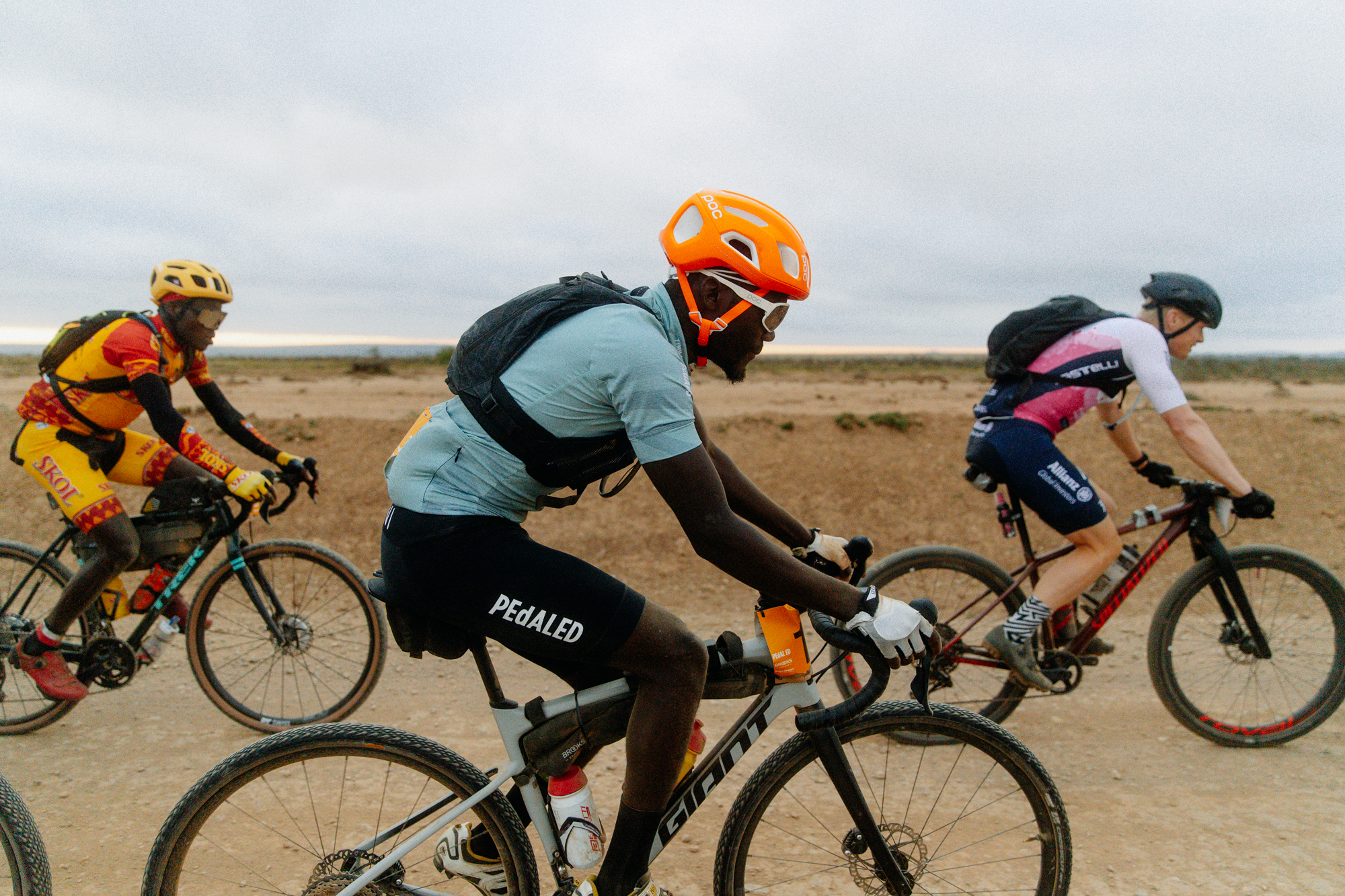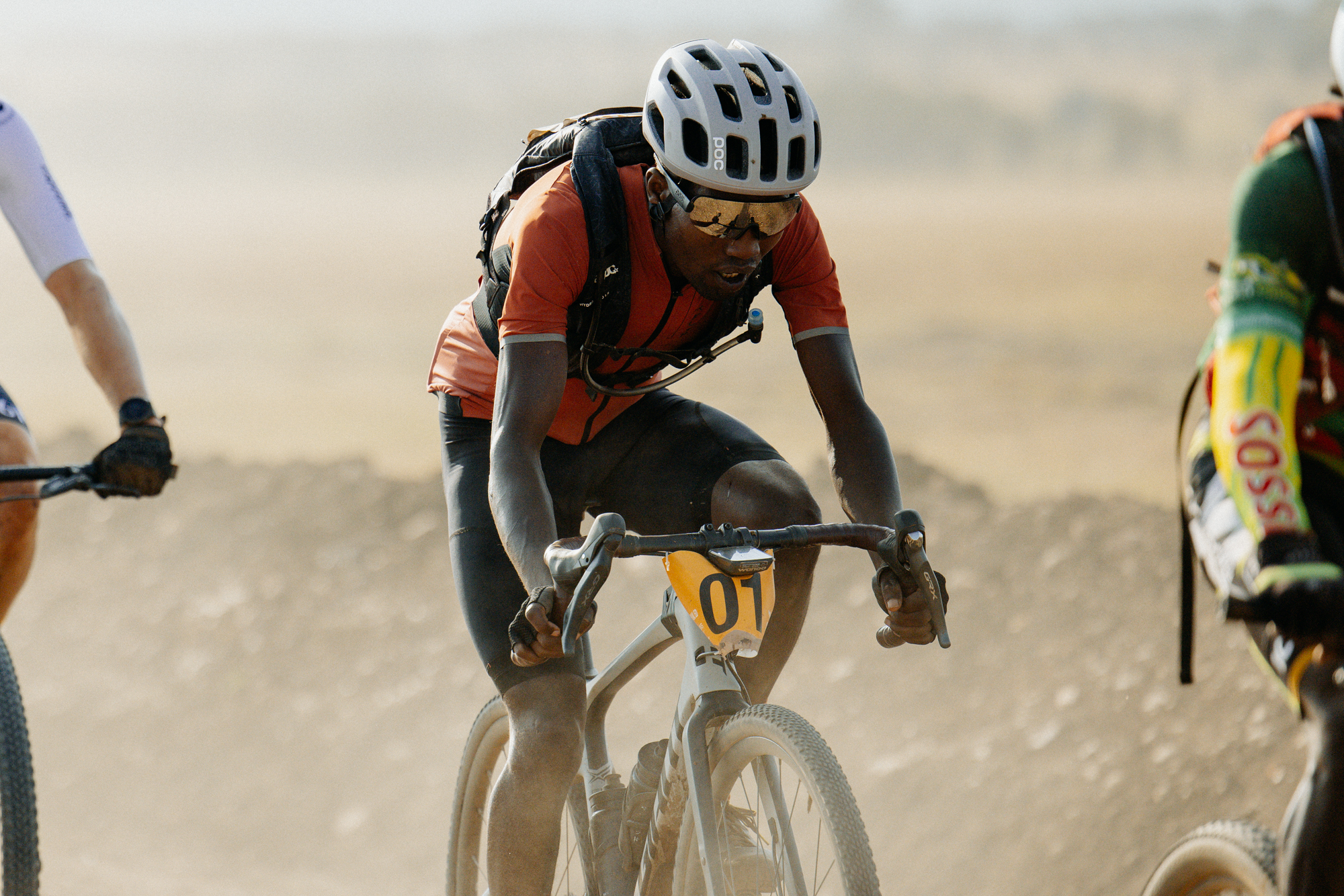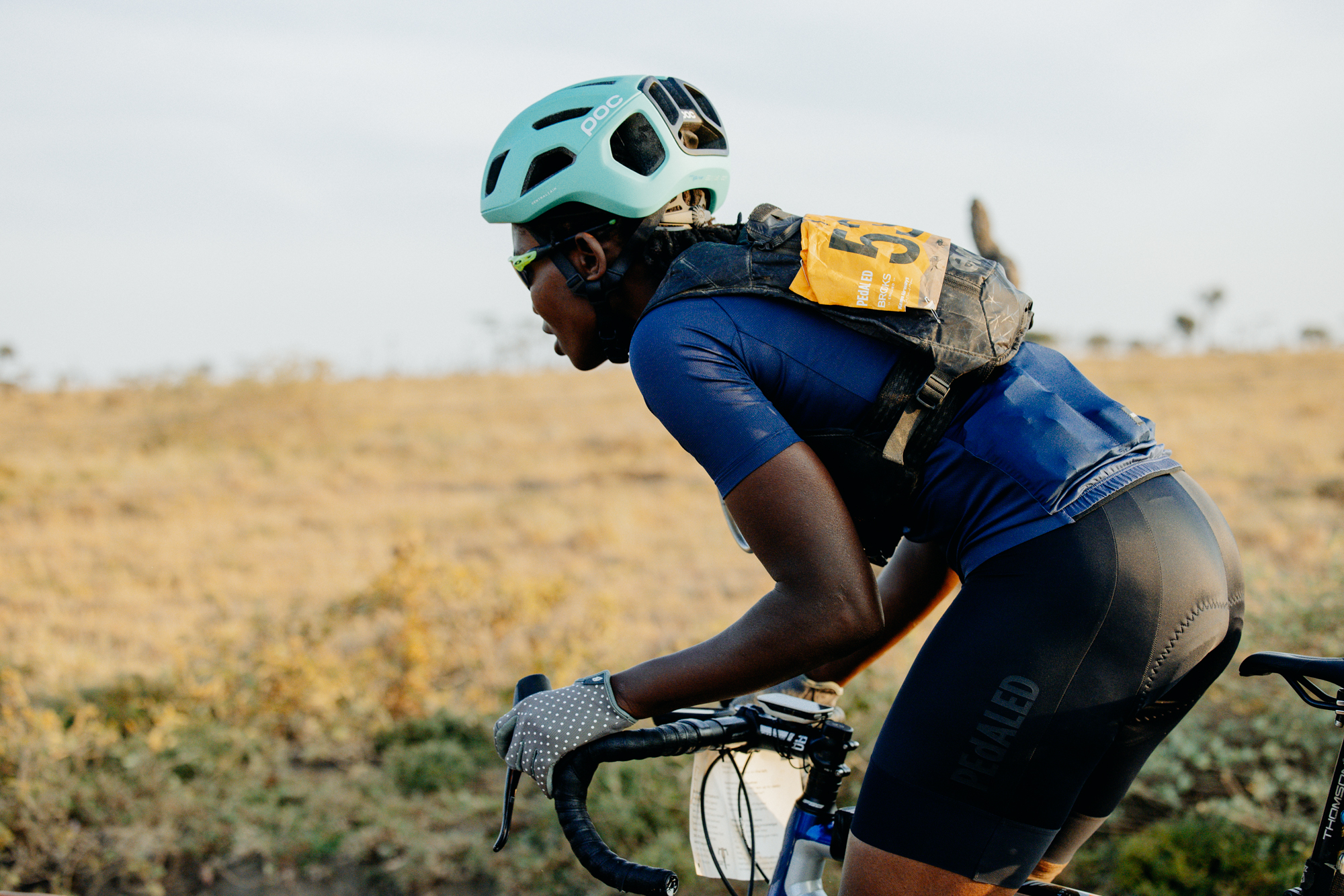African riders have always faced cultural, linguistic, and financial barriers to succeed outside their continent. Previous opportunities were short-lived, and many times it seemed more a given handout than an earned opportunity.
People from most African countries consider cycling to be a waste of time, compared to running. Whereas there is not a famous cyclist, marathon runners have shown that it is possible to be successful by running. In these nations, the perception is that you only ride a bike if you can’t afford a car. It’s not seen as a sport for the elite, as there hasn’t been a true pioneer showing the path to the top. Also, there have been several occasions in which African riders were not able to adapt to life away from home. The time commitment of a full season of racing means that they will have to leave their families behind, something they are not used to.
Compared to professional road racing, riders can line up in gravel races against the best in the world without having to be part of a professional team. Gravel is an easier avenue for riders from countries without the necessary infrastructure. With gravel, they don’t have to go 40 km away to find suitable terrain for training, as the roads close to home are not suited for the kind of training that cyclists must do in order to succeed in road racing. The terrain is perfect for gravel racing, but several local riders still lack some resources to race, and in fact, some participants tried a gravel bike for the first time the day before the start of the event.
The Migration Gravel Race
The Migration Gravel Race was the biggest cycling event to ever happen in Kenya, even if only around 60 riders started the event on June 23rd. A dozen nations were represented in the startlist, with riders from East Africa facing some of the current best gravel racers in the world. Ian Boswell and Laurens Ten Dam, 1st and 2nd at Unbound 2021 respectively, took part in the event.
For the organizers, it made more sense to bring international riders to Africa instead of the other way around, as that would have put a huge amount of stress on the African riders. It was a multiple-stage gravel racethat took place on June 23rd-26th in the Maasai Mara National Reserve, home to a huge amount of wildlife with a widespread network of gravel roads. The base camp was comprised of a hundred tents where riders and staff slept, creating bonds between all people involved in the event.
Organizers asked the riders coming from America and Europe to take the event seriously, as a legit bike race, so that African riders could compare their level against the best and improve. Knowing the difficulty for riders from Africa to race in Europe, the Migration Gravel Race did it the other way around; cyclists from well-developed countries flew to Kenya to race in home soil for Eastern Africa riders. They all learned a lot by the simple fact of watching former pro riders race, improving their physical and tactical skills.
The Migration Gravel Race was organized as a response to the needs of cycling clubs in Rwanda, Kenya, and Uganda. After a successful first edition, there will surely be a lot of European and American riders interested in going to Kenya to take part in the Migration Gravel Race, but the purpose of the event will forever be to help develop East African cyclists.
The race is part of the Team AMANI project, an initiative focused on creating opportunities for East Africa cyclists in collaboration with local partners. Being aware of the difficulties that those cyclists face, the goal was to set up a model that could allow them to compete on an international stage. So far, e-racing has been key to provide East African riders with a global platform at a reduced cost, and what started out of necessity is now a real opportunity to test themselves. Nonetheless, the Migration Gravel Race was the turning point for most riders, who were able to line up against some of the best gravel racers.
An earned opportunity
The ‘Fursa’ partnership between Wahoo and Team AMANI is giving four top-level athletes the chance to compete at SBT GRVL, BWR Asheville, and Vermont Overland. Knowing that, all riders worked so hard to get one of the spots, constantly thinking about how to perform in each of the stages and how to show their strengths. Those are some of the most prestigious gravel races in the United States, and the SBT Gravel on August 15th in Colorado will be their first test.
The Team AMANI collaborated with Wahoo Sports Science to identify four standout athletes who would travel to the United States and compete in premier events. This time, African riders have shown that they are ready, and the opportunity that they have earned will help them to compete at the highest level with guarantees.
Rwanda has traditionally been the best cycling nation in the region, but the focus of the event was on Kenya and Uganda as well. Kenyans were aware of the race for about a year, and they have been training hard since then. The riders chosen to travel to the US are Sule Kangangi, John Kariuki, Nancy Akinyi, and Geoffrey Langat, all of them from Kenya.
Sule is from a region known for producing distance runners, not cyclists. He already raced all around the world when he was part of the UCI Continental team Bike Aid, and finished 2nd in the Migration Gravel Race. Sule is one of the pioneers of the sport of cycling in his country and as coordinator of the Amani Project in Kenya, is creating opportunities not only for himself but for the next generation of Kenyan cyclists.
John won the biggest road stage race in Kenya, the Tour of Machakos, in 2019, and has won many elite level e-races on Zwift. He wasn’t able to perform at the Migration Gravel Race because he competed on a borrowed bike that did not fit him, but in the United States, he will have all the necessary gear to show his true potential.
Geoffrey Kiprotich Langat (1989)
Like many Kenyans, Geoffrey was first an accomplished distance runner before he turned his attention to cycling. When the pandemic started and with travel and competition restricted, Geoffrey began exploring his country’s wealth of gravel roads by bike. He found he had an aptitude for riding hard off-road and on the third stage of the Migration Gravel Race, he attacked solo and claimed the victory.
When she went to university, someone offered Nancy a mountain bike and she never looked back. Since then, she’s won nearly every race she has entered in Kenya. Nancy won the Migration Gravel Race and is looking forward to competing against the best in the United States.
Documentary
In parallel with the announcement of the selected riders, Wahoo has launched a documentary that tries to educate viewers on the history and culture of East Africa, covering what happened in the Migration Gravel Race but going beyond the results and classifications. ”Fursa” means opportunity in Swahili, and that is what Wahoo and Team AMANI are offering to these four athletes.



